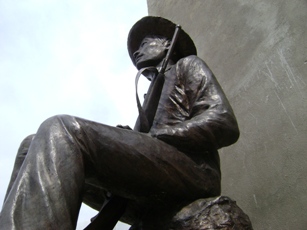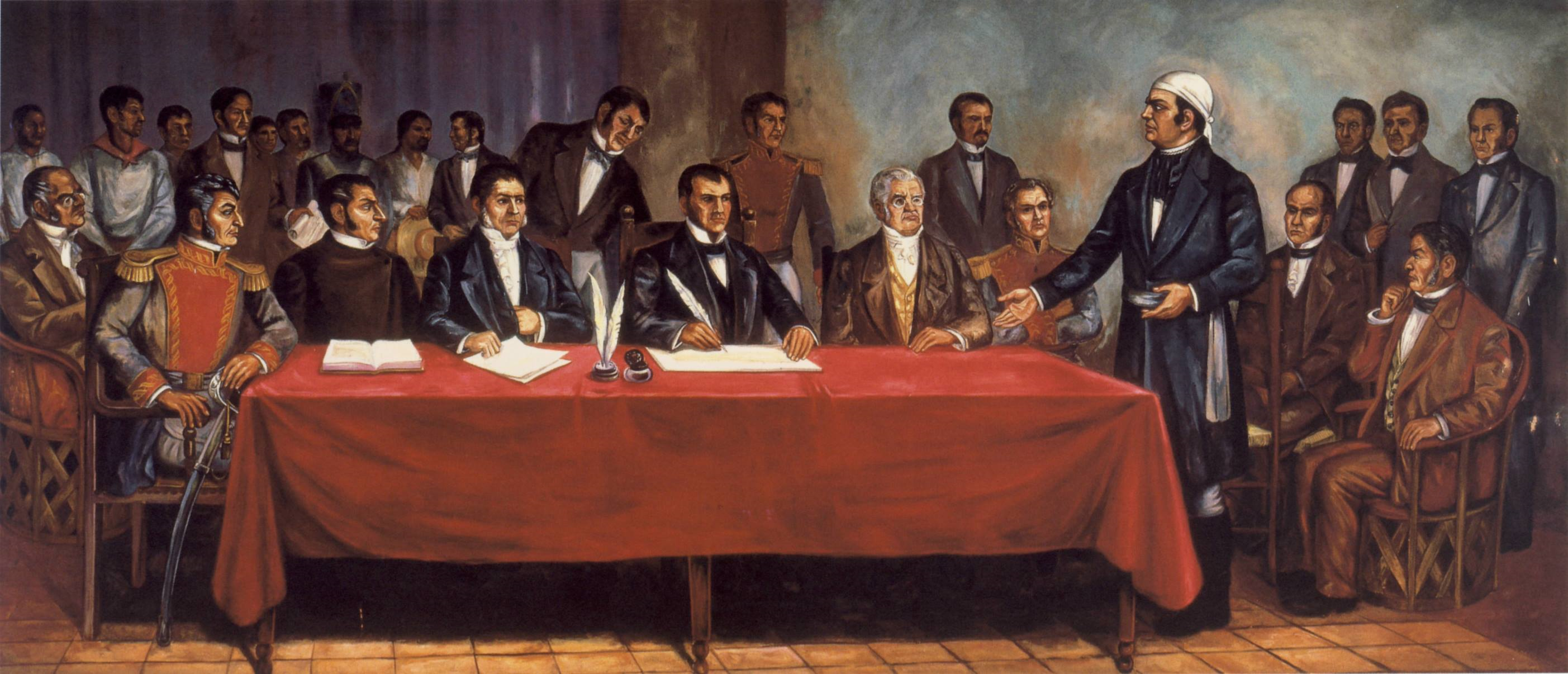|
1979 Mexican Legislative Election
Legislative elections were held in Mexico on 1 July 1979.Dieter Nohlen (2005) ''Elections in the Americas: A data handbook, Volume I'', p453 The Institutional Revolutionary Party (PRI) won 296 of the 400 seats in the Chamber of Deputies. Voter turnout was 49%.Nohlen, p460 They were the first national elections held after the approval of the political reform of 1977, which allowed the Mexican Communist Party, Mexican Democratic Party and the Workers' Socialist Party to obtain legal registration and compete in elections for the first time, as well as increasing the size of the Chamber of Deputies from 237 seats to 400. Background The National Action Party, the only significant opposition to the PRI, did not nominate a presidential candidate in the 1976 general elections due to intense internal conflicts. Subsequently, a legitimacy crisis emerged that called into question the democratic model envisioned in the constitution. Valentín Campa, a well-known union leader and figureh ... [...More Info...] [...Related Items...] OR: [Wikipedia] [Google] [Baidu] |
Mexico
Mexico (Spanish: México), officially the United Mexican States, is a country in the southern portion of North America. It is bordered to the north by the United States; to the south and west by the Pacific Ocean; to the southeast by Guatemala, Belize, and the Caribbean Sea; and to the east by the Gulf of Mexico. Mexico covers ,Mexico ''''. . making it the world's 13th-largest country by are ... [...More Info...] [...Related Items...] OR: [Wikipedia] [Google] [Baidu] |
Mexican Dirty War
The Mexican Dirty War ( es, Guerra sucia) was the Mexican theater of the Cold War, an internal conflict from the 1960s to the 1980s between the Mexican PRI-ruled government under the presidencies of Gustavo Díaz Ordaz, Luis Echeverría and José López Portillo, which were backed by the US government, and left-wing student and guerrilla groups. During the war, government forces carried out disappearances, estimated at 1,200, systematic torture, and "probable extrajudicial executions". In the 1960s and 1970s, Mexico was persuaded to be part of both Operation Intercept and Operation Condor, developed between 1975 and 1978, with the pretext to fight against the cultivation of opium and marijuana in the "Golden Triangle", particularly in Sinaloa. The operation, commanded by General José Hernández Toledo, was a flop with no major drug-lord captures; however, many abuses and acts of repression were committed. The judicial investigation into State crimes against political mov ... [...More Info...] [...Related Items...] OR: [Wikipedia] [Google] [Baidu] |
1979 Elections In Mexico
Events January * January 1 ** United Nations Secretary-General Kurt Waldheim heralds the start of the ''International Year of the Child''. Many musicians donate to the ''Music for UNICEF Concert'' fund, among them ABBA, who write the song ''Chiquitita'' to commemorate the event. ** The United States and the People's Republic of China establish full Sino-American relations, diplomatic relations. ** Following a deal agreed during 1978, France, French carmaker Peugeot completes a takeover of American manufacturer Chrysler's Chrysler Europe, European operations, which are based in United Kingdom, Britain's former Rootes Group factories, as well as the former Simca factories in France. * January 7 – Cambodian–Vietnamese War: The People's Army of Vietnam and Vietnamese-backed Kampuchean United Front for National Salvation, Cambodian insurgents announce the fall of Phnom Penh, Cambodia, and the collapse of the Pol Pot regime. Pol Pot and the Khmer Rouge retreat west to an area ... [...More Info...] [...Related Items...] OR: [Wikipedia] [Google] [Baidu] |
1979 Elections In North America
Events January * January 1 ** United Nations Secretary-General Kurt Waldheim heralds the start of the ''International Year of the Child''. Many musicians donate to the ''Music for UNICEF Concert'' fund, among them ABBA, who write the song ''Chiquitita'' to commemorate the event. ** The United States and the People's Republic of China establish full Sino-American relations, diplomatic relations. ** Following a deal agreed during 1978, France, French carmaker Peugeot completes a takeover of American manufacturer Chrysler's Chrysler Europe, European operations, which are based in United Kingdom, Britain's former Rootes Group factories, as well as the former Simca factories in France. * January 7 – Cambodian–Vietnamese War: The People's Army of Vietnam and Vietnamese-backed Kampuchean United Front for National Salvation, Cambodian insurgents announce the fall of Phnom Penh, Cambodia, and the collapse of the Pol Pot regime. Pol Pot and the Khmer Rouge retreat west to an area ... [...More Info...] [...Related Items...] OR: [Wikipedia] [Google] [Baidu] |
Authentic Party Of The Mexican Revolution
The Authentic Party of the Mexican Revolution () was a Mexican political party that existed from 1954 to 2000. For most of its existence, the PARM was generally considered a satellite party of the governing Institutional Revolutionary Party (PRI). The PARM was founded by a group of veterans of the Mexican Revolution who had been marginalized in the PRI, led by Juan Barragán and Jacinto B. Treviño, both revolutionary generals who had held important governmental positions. The foundation of the PARM was supported by President Adolfo Ruiz Cortines, who saw a way to have an officially independent party that would support the efforts of the PRI and would give the appearance of democratic competition in elections and in Congress. From their founding to 1988, the PARM did not present a separate candidate to the presidency, instead backing the PRI candidates and supporting presidential proposals in Congress. It was only an independent competitor in one city, Nuevo Laredo, where it ... [...More Info...] [...Related Items...] OR: [Wikipedia] [Google] [Baidu] |
Popular Socialist Party (Mexico)
The Popular Socialist Party ( es, Partido Popular Socialista, PPS) was a communist party in Mexico. It was founded in 1948 as the Popular Party (''Partido Popular'') by Vicente Lombardo Toledano. Lombardo Toledano, the initial leader of the Confederation of Mexican Workers (CTM), decided to launch a new party in response to the increasingly moderate and corrupt policies of the ruling Institutional Revolutionary Party (PRI). The Popular Party was supported by the mine, oil and rail workers' unions, but its potential strength in elections was reduced by the strength of the PRI. The party adopted Marxism-Leninism as its ideological line in 1960.Rodríguez Araujo, Octavio. La reforma política y los partidos en México'. México: Siglo Veintiuno Editores, 1989. p. 43 It was renamed the Popular Socialist Party in 1960, and over time its leadership became less critical of the PRI. In subsequent years it was often criticized as being a "loyal opposition," or part of the status quo. ... [...More Info...] [...Related Items...] OR: [Wikipedia] [Google] [Baidu] |
Lucio Cabañas
Lucio Cabañas Barrientos (, 12 December 1938 – 2 December 1974) was a Mexican schoolteacher who became a revolutionary, albeit not a Marxist one. Cabañas regarded Emiliano Zapata as his role model and he never abandoned his Christian faith, as can be seen in Gerardo Tort's film documentary on him. Early life Lucio was born on December 12, 1938 into a peasant household. His paternal grandfather had been a Zapatista and his uncle Pablo, had participated in the Vidales brothers' guerilla in the 1920s. He completed his basic education in the town of El Cayaco. Later in February 1956, he entered the Ayotzinapa Normal. Teacher He was born in El Porvenir, of Atoyac de Álvarez, in the state of Guerrero. He became politically active when he studied at the Ayotzinapa Rural Teachers' College and was a leader of the local student union. In 1962 he was elected to the post of General Secretary of the Federation of Socialistic Peasant Students of Mexico. When he began work as a teach ... [...More Info...] [...Related Items...] OR: [Wikipedia] [Google] [Baidu] |
Genaro Vázquez Rojas
Genaro Vázquez Rojas (June 10, 1931February 2, 1972) was a Mexican school teacher, organiser, militant, and guerrilla fighter. Civic Associations Guerreran Civic Community Genaro Vázquez Rojas studied law at the National Autonomous University of Mexico ( es, Universidad Nacional Autónoma de México) (UNAM), however did not finish. At age 24 he co-founded the Guerreran Civic Community (CCG), while teaching at schools in the slums of the Federal District. The following year in 1958 Vázquez Rojas participated in the Revolutionary Teachers' Movement (MRM) during the strike and seizure of the Secretariat of Public Education. Vázquez Rojas would eventually be fired from his teacher's position and go on to represent coffee, copra, and palm workers before the Department of Agrarian Affairs and Colonization (DAAC). Guerrero Civic Association Between 1958 and 1960, the CCG would transform into the with the stated goals of fighting for land reform and peasant workers. On May 13, 1960, ... [...More Info...] [...Related Items...] OR: [Wikipedia] [Google] [Baidu] |
Chilpancingo
Chilpancingo de los Bravo (commonly shortened to Chilpancingo; ; Nahuatl: Chilpantsinko) is the capital and second-largest city of the state of Guerrero, Mexico. In 2010 it had a population of 187,251 people. The municipality has an area of in the south-central part of the state, situated in the Sierra Madre del Sur mountains, on the bank of the ''Huacapa River''. The city is on Mexican Federal Highway 95 which connects Acapulco to Mexico City. It is served by Chilpancingo National Airport, which is one of the five airports in the state. History In pre-Columbian times, the area was occupied by the Olmecs, who built an extensive tunnel network through the mountains, and left the cave paintings in the caverns of Juxtlahuaca. The city of Chilpancingo was founded on November 1, 1591, by the Spanish conquistadores, its name meaning “Place of Wasps” in Nahuatl. During the War of Independence, Chilpancingo was crucial to the insurgent cause as its population participated actively ... [...More Info...] [...Related Items...] OR: [Wikipedia] [Google] [Baidu] |
Secretariat Of The Interior
The Mexican Secretariat for Home Affairs ( es, Secretaría de Gobernación, SEGOB, lit=Secretariat for Governance) is the public department concerned with the country's domestic affairs, the presenting of the president's bills to Congress, their publication on the Official Journal of the Federation, and certain issues of national security. The country's principal intelligence agency, CISEN, is directly answerable to the Secretary of the Interior. The Secretary is a member of the President's Cabinet and is, given the constitutional implications of the post, the most important Cabinet Member. Additionally, in case of absolute absence of the President, the Secretary of Interior assumes the executive powers of the President provisionally. The Office is practically equivalent to Ministries of the Interior in most other countries (with the exception of the that of the United States of America) and is occasionally translated to English as Ministry, Secretariat or Department of the In ... [...More Info...] [...Related Items...] OR: [Wikipedia] [Google] [Baidu] |
Party Of The Poor (Mexico)
The Party of the Poor ( es, Partido de los Pobres, the PdlP) was a left-wing political movement and militant group in Mexico operating between 1967 and 1974. Led by the rural schoolteacher Lucio Cabañas, the PdlP – through its armed wing, the Peasants' Justice Brigade ( es, Brigada Campesina de Ajusticiamiento) – waged guerrilla warfare against the Mexican government in the mountains of Guerrero. After the death of Cabañas and several other key insurgents at the hands of the government on 2 December 1974, the PdlP was dissolved. Its legacy, and that of Cabañas, remains active in contemporary Mexican radical politics. History Origin The Party of the Poor was founded in 1967 in the Mexican state of Guerrero as a political organization. This took place in the context of the Dirty War's first beginnings, a conflict between the Institutional Revolutionary Party government and various urban and rural left-wing movements which would last roughly between the Tlatelolco massacre i ... [...More Info...] [...Related Items...] OR: [Wikipedia] [Google] [Baidu] |

_(cropped_v2).jpg)


